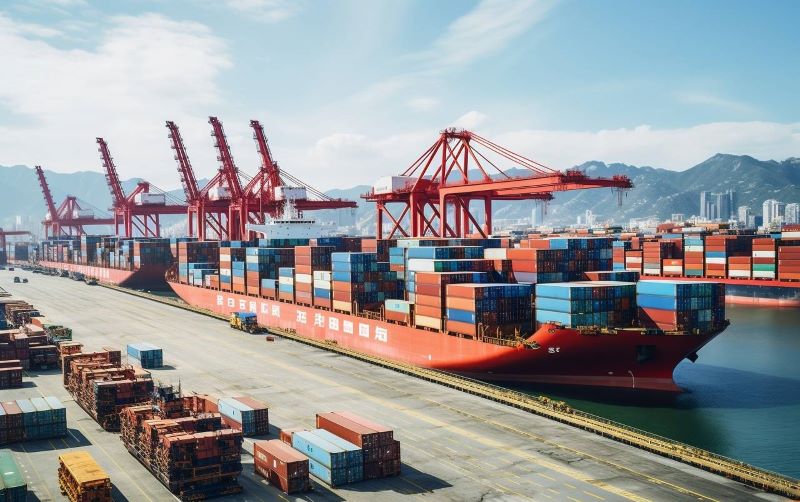Shipping goods from China to Germany can be a complex and challenging process, especially with the various regulations, logistics, and potential hurdles involved. This is where a freight forwarder comes into play, offering a seamless and efficient solution for businesses looking to navigate the complexities of international shipping. In this guide, we’ll explore the key benefits of using a freight forwarder for shipments from China to Germany, highlight essential features to consider, and provide expert advice on how to address common problems that may arise.
Key Benefits of Using a Freight Forwarder from China to Germany
1. Expertise in International RegulationsOne of the most significant advantages of using a freight forwarder is their in-depth knowledge of international shipping regulations. Freight forwarders are well-versed in the import and export requirements for both China and Germany, ensuring that your shipment complies with all necessary customs procedures, documentation, and regulations. This expertise helps to avoid delays, fines, or even the seizure of goods, providing peace of mind that your shipment will arrive smoothly and on time.
2. Cost-Effective Shipping SolutionsFreight forwarders have established relationships with various carriers, which allows them to negotiate competitive rates on your behalf. By consolidating shipments from multiple clients, they can offer lower shipping costs, making it more affordable to move goods between China and Germany. Additionally, their experience in optimizing shipping routes and methods ensures that you get the best value for your money.
3. Simplified Logistics ManagementManaging the logistics of shipping goods across international borders can be overwhelming. Freight forwarders take on this responsibility, coordinating every aspect of the shipping process, from picking up goods in China to delivering them in Germany. This includes arranging transportation, handling documentation, managing customs clearance, and providing real-time tracking updates. By simplifying logistics management, freight forwarders free up your time to focus on other aspects of your business.
4. Risk Mitigation and Problem ResolutionShipping goods internationally involves various risks, including delays, damage, or loss of goods. Freight forwarders offer comprehensive risk management services, such as cargo insurance, to protect your shipment from unforeseen circumstances. In the event of a problem, they have the expertise and resources to quickly resolve issues, ensuring minimal disruption to your supply chain.
5. Flexibility and ScalabilityWhether you’re shipping a small consignment or a large volume of goods, freight forwarders offer flexible solutions tailored to your specific needs. They can scale their services to accommodate changes in shipment size, frequency, and destination, making them an ideal partner for businesses of all sizes. This flexibility ensures that your shipping needs are met, no matter how they evolve over time.
Essential Features to Consider When Choosing a Freight Forwarder
1. Global Network and Local ExpertiseWhen selecting a freight forwarder, it’s essential to choose one with a robust global network and local expertise in both China and Germany. A freight forwarder with established offices or partners in both countries can offer better coordination, faster communication, and a deeper understanding of local regulations, ensuring smoother shipping operations.
2. Range of Services OfferedDifferent freight forwarders offer varying levels of service, so it’s important to choose one that meets your specific needs. Look for a freight forwarder that offers a comprehensive range of services, including air and sea freight, customs clearance, warehousing, and distribution. A one-stop-shop approach can streamline the shipping process and reduce the need to work with multiple providers.
3. Technology and Real-Time TrackingIn today’s digital age, having access to real-time tracking and shipment visibility is crucial. Choose a freight forwarder that utilizes advanced technology to provide accurate and up-to-date information on the status of your shipment. This not only enhances transparency but also allows you to proactively address any potential issues that may arise during transit.
4. Customer Support and CommunicationEffective communication is key to successful international shipping. A reliable freight forwarder should offer excellent customer support, with responsive communication channels to address any questions or concerns you may have. Clear and consistent communication helps to build trust and ensures that you are always informed about the progress of your shipment.
5. Experience and ReputationExperience matters when it comes to international shipping. Choose a freight forwarder with a proven track record of successfully handling shipments between China and Germany. Research their reputation in the industry, read customer reviews, and ask for references to ensure that you’re working with a reputable and reliable partner.
How to Address Common Problems When Using a Freight Forwarder
1. Delays in Shipment
- Problem: Delays in shipment can occur due to various factors, such as customs inspections, carrier issues, or unforeseen events.
- Solution: To mitigate delays, work closely with your freight forwarder to ensure all documentation is accurate and complete. Choose a freight forwarder with a strong network of carriers and contingency plans in place to handle delays. Regular communication with your freight forwarder can also help you stay informed and make necessary adjustments if delays occur.
2. Customs Clearance Issues
- Problem: Customs clearance can be a complex process, and any mistakes in documentation or compliance can lead to delays or additional costs.
- Solution: Ensure that your freight forwarder has extensive experience with customs regulations in both China and Germany. They should provide guidance on the required documentation and help you navigate any potential issues. Regularly review your shipping procedures to ensure compliance with current regulations.
3. Damage or Loss of Goods
- Problem: Damage or loss of goods during transit is a common concern for businesses shipping internationally.
- Solution: Protect your shipment by investing in cargo insurance through your freight forwarder. Ensure that the freight forwarder you choose has a solid track record of handling goods with care and offers secure packaging and transportation options. In the event of damage or loss, your freight forwarder should assist you in filing claims and resolving the issue promptly.
4. Inaccurate or Unexpected Costs
- Problem: Unexpected costs, such as additional fees or surcharges, can disrupt your budget and impact profitability.
- Solution: To avoid unexpected costs, request a detailed quote from your freight forwarder that outlines all potential charges. Work with a transparent freight forwarder who provides clear explanations of costs and offers solutions to minimize expenses. Regularly review your shipping strategy to identify opportunities for cost savings.
5. Lack of Visibility and Communication
- Problem: A lack of visibility into the status of your shipment can lead to uncertainty and challenges in managing your supply chain.
- Solution: Choose a freight forwarder that offers real-time tracking and proactive communication. Regular updates and access to shipment information allow you to make informed decisions and address any issues as they arise. Establish clear communication expectations with your freight forwarder to ensure you receive the level of service you need.
Expert Advice for Maximizing the Benefits of a Freight Forwarder
1. Build a Strong PartnershipDeveloping a strong partnership with your freight forwarder is essential for successful international shipping. Establish clear communication channels, set expectations, and work collaboratively to address challenges. A trusted freight forwarder can become an invaluable extension of your logistics team.
2. Stay Informed on Regulatory ChangesInternational shipping regulations are constantly evolving. Stay informed about changes in customs regulations, tariffs, and shipping requirements in both China and Germany. Work with your freight forwarder to ensure compliance with new regulations and avoid potential delays or penalties.
3. Optimize Your Shipping StrategyRegularly review and optimize your shipping strategy to maximize efficiency and cost savings. Consider factors such as shipping routes, carrier options, and packaging methods. Your freight forwarder can provide valuable insights and recommendations to help you make informed decisions.
4. Plan for ContingenciesInternational shipping involves various risks, so it’s important to have contingency plans in place. Work with your freight forwarder to identify potential risks and develop strategies to mitigate them. This includes having backup transportation options, insurance coverage, and emergency communication protocols.
Conclusion
Using a freight forwarder for shipments from China to Germany offers numerous benefits, including expert knowledge of international regulations, cost-effective solutions, and simplified logistics management. By understanding the key features to look for in a freight forwarder and knowing how to address common issues, you can ensure a smooth and successful shipping experience. With the right freight forwarder by your side, you can navigate the complexities of international shipping with confidence, allowing your business to thrive in the global marketplace.



